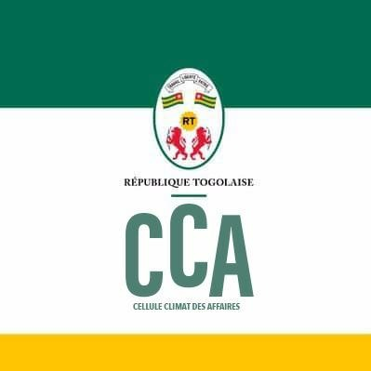Togo adopts a new national development plan (PND 2018-2022)

(Togo First) - Last Friday during a ministers’ council, Togo’s government adopted a new five-year roadmap which is the 2018-2020 National Development Plan (PND 2018-2020 in French). The document will replace the SCAPE which helped the nation initiate deep economic transformations, such as modernizing infrastructures.
Major projects
The PND aims to make Togo an economic reference in West Africa. It results from a process that involved key actors of the public administration, private sector, civil society, regional leaders but also technical and financial partners.
The 5-year program will be used as a guiding reference for government’s actions and all interactions with Togo’s partners. It will, according to relevant sources, help make the country a top-class logistics and business hub.
Under its first axis, this new strategy will focus on improving infrastructures and processes at the Port of Lomé, which is currently the only deep-water port in West Africa, as well as boost road infrastructures and aviation. Regarding the latter, Asky, which is partners with Ethiopian Airlines and other major African airlines, is quite active in the sector. Moreover, many projects are expected in the digital industry. Some will help improve key infrastructures subsequently raising quality of services provided to users in the sector.
The National Development Plan also aims to make Togo a business and tourism hub and turn Lomé, which already hosts headquarters of major financial institutions (BOAD, BIDC, Orabank, Ecobank, African Guarantee Fund), into a top-class business centre in Africa.
Under its second axis, the plan will focus on creating poles for agricultural processing, manufacturing and mining in various parts of Togo. The following align with this objective: the agropoles project backed by South Korea, BOAD, AfDB; the industrial parks project; the national electrification strategy under which the country intends to achieve 50% and 75% electrification rates by 2020 and 2025 respectively; reviving mining industry, promoting artisanal entrepreneurship and all sorts of businesses.
Finally, the government’s new action plan seeks to consolidate social development and boost inclusion mechanisms.
The third axis will focus on improving educational system and professional training, but also the provision of basic social services (health, water and power), youth employment, financial inclusion, gender equity, social and environmental protection.
Over five years, the plan will require about $8.3 billion (4,622.2 billion CFA) to make Togo’s economy more resilient, sustainable, inclusive and robust while creating more jobs and improving populations’ social welfare.
Target: A 7.6% growth rate and 500,000 direct and decent jobs
With the PND, the government expects economic growth to rise to 7.6% in 2022, from 6.6% now. This should, according to authorities, create more jobs, redistribute national wealth and thus significantly reduce poverty and help the country achieve a greater human development level, mainly by improving access to basic services as mentioned earlier.
In detail, the PND should help provide more than 500,000 people with a stable and decent job. Meanwhile, as the economy will become more competitive and productive, per capita income is expected to rise by 9.7% to $670, with a better distribution.
Togo, let’s note, wishes to rise 10 places on the Mo Ibrahim Governance Index which already identifies the country as the second African nation to have implemented reforms the most after Côte d’Ivoire in the past 10 years. On World Bank’s Doing Business Index, Togo aims to rise 10 ranks every year throughout the PND’s implementation period. To this end, the government created at the end of 2017 the business climate cell (CCA) which coordinates various reforms that aim to improve Togo’s business climate.
Private sector, greatest contributor
As said previously, the PND will require $8.3 billion. Private sector will contribute greatly to this amount; $5.4 billion (CFA2, 999.1 billion) or 65% of the overall projected financing to be exact. The government will provide remaining 35% ($2.9 billion).
According to the statement released by the minister’s council following the PND’s adoption, President Faure Gnassingbé “has urged the government to strengthen dialogue with all key actors of the Togolese society, namely private sector, political actors, syndicates and civil society organizations, in order to promote a better appropriation of the PND and to ensure their participation in its implementation and the achievement of desired goals”.
A strong support
Given its quite ambitious nature, the PND is getting supports from various entities. The World Bank for example is one of those, along with the IMF. Indeed, while the first announced under its new partnership framework that it will increase its support to Togo to back the PND, the second, pleased with the roadmap’s finalization, raised the country’s economic outlook in its latest review. The PNUD also lauded the plan and the International Finance Corporation (IFC) which is the World Bank’s arm in charge of private sector, with the International Solar Alliance (ISA) both said Togo’s 2030 electrification strategy, which aligns with the PND, is quite realistic and “the first of a kind in Africa”. In addition to all these are AfDB and BOAD which support Togo’s new incentive scheme for agricultural funding (MIFA) in addition to the agropole creation project.
More partners, such as Afreximbank and China could join current backers once the PND is effectively on track.
Fiacre E. Kakpo

















